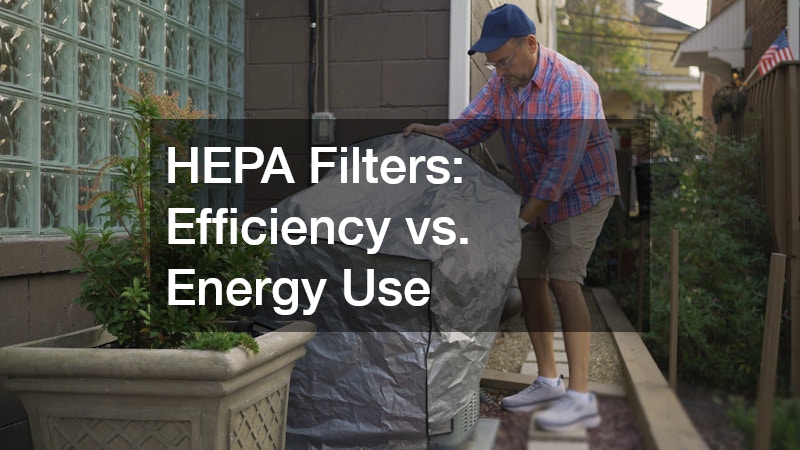Understanding the relationship between HVAC filters and energy efficiency is crucial for optimizing performance, reducing energy costs, and maintaining indoor air quality. In this article, we will explore common questions and essential information you need to know about HVAC filters and their impact on energy efficiency. For both residential and commercial HVAC systems, selecting the right filter and maintaining it properly can lead to significant energy savings and improved air quality, making this knowledge indispensable.
The Role of Filter Type and Thickness
Different types of HVAC filters can significantly influence the overall energy efficiency of your system. Filters vary by material and design, which can affect how easily air flows through the system and, consequently, how hard the system has to work to maintain temperature settings. Thicker filters often have a higher filtration capacity but might require more energy to push air through, highlighting the need to balance filter efficiency with energy consumption.
Choosing the proper filter for your HVAC system involves understanding the trade-offs between air quality and energy use. A thicker filter with a higher MERV rating can remove more particles from the air, but it may also increase the system’s energy usage due to increased air resistance. Therefore, selecting a filter that matches your HVAC system’s capabilities while considering environmental conditions is essential for optimizing energy efficiency.
In homes with specific air quality requirements, such as those with allergies or asthma, the choice of filter can be even more critical. Higher-efficiency filters might be necessary to capture finer particulates, improving indoor air quality at the expense of higher energy demand. Balancing this requirement with energy-saving goals requires careful consideration of both the filter’s specifications and the layout of the HVAC system.
Filter Maintenance and Energy Consumption
Regular maintenance of HVAC filters is crucial for maintaining energy efficiency within a system. A well-maintained filter ensures that the HVAC system operates under optimal conditions, reducing unnecessary energy consumption. When filters are neglected, they become clogged, forcing the system to work harder and consume more energy to achieve the same temperature settings.
The frequency of maintenance activities largely depends on environmental factors such as dust levels and pollen exposure. In areas with high pollution or during pollen-heavy seasons, more frequent filter replacement or maintenance might be necessary. Implementing a regular maintenance schedule based on these factors can significantly enhance the longevity and efficiency of the HVAC system while also conserving energy.
Techniques such as regular inspections and cleaning can help prolong the life span of HVAC filters. By identifying potential issues early, these preventative measures can prevent more serious damage to the system and reduce overall energy consumption. Ultimately, diligent filter maintenance is a key component in sustaining energy efficiency, providing both economic and environmental benefits.
HEPA Filters: Efficiency vs. Energy Use
HEPA filters are renowned for their high filtering efficiency, capable of capturing over 99% of airborne particles as small as 0.3 microns. While they offer exceptional air quality benefits, their dense structure can increase energy use as HVAC systems must work harder to push air through them. This trade-off between air purity and energy consumption is a significant consideration for users when selecting a filter type.
Despite their higher energy demands, HEPA filters remain a popular choice in environments where air quality is critical, such as hospitals and allergy-sensitive homes. In these settings, the health benefits of using HEPA filters often outweigh the increased energy costs. However, in standard residential or commercial environments, these filters might not always be necessary, and alternative options with lower energy impacts might be more appropriate.
Efficiency-focused users might pair HEPA filters with advanced HVAC systems designed to accommodate their higher resistance levels without excessive energy demands. Innovations in filter and HVAC technologies are gradually improving the energy efficiency of using HEPA filters, making them a viable option for a broader range of applications. As technology advances, these filters might achieve a more balanced relationship between energy efficiency and air quality performance.
MERV Ratings and Their Implications on Energy Efficiency
The Minimum Efficiency Reporting Value (MERV) rating is a crucial indicator of a filter’s efficiency based on its ability to capture particles of varying sizes. Higher MERV ratings denote better filtration capability but typically come with increased resistance to airflow, which can impact energy efficiency. Selecting an appropriate MERV-rated filter involves balancing the need for air purification with the system’s energy efficiency targets.
Effective management and understanding of HVAC filters are crucial for sustaining energy efficiency. By choosing the right filters, maintaining them properly, and replacing them timely, homeowners and businesses can optimize their HVAC systems for energy savings and improved air quality. Smart filter management practices not only reduce costs but also contribute to a more sustainable and healthy living or working environment, underscoring their importance in modern HVAC system operation.

